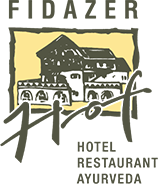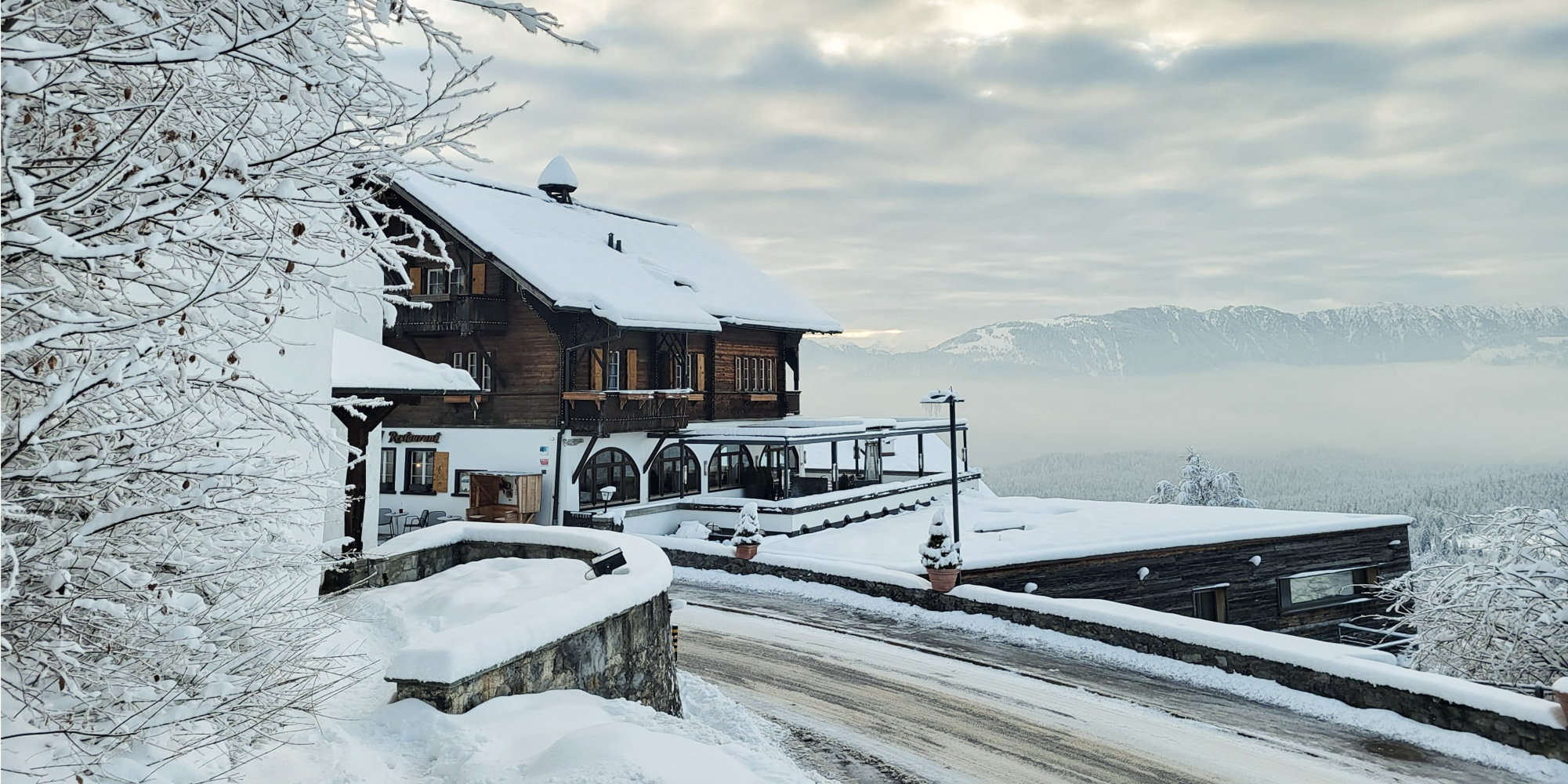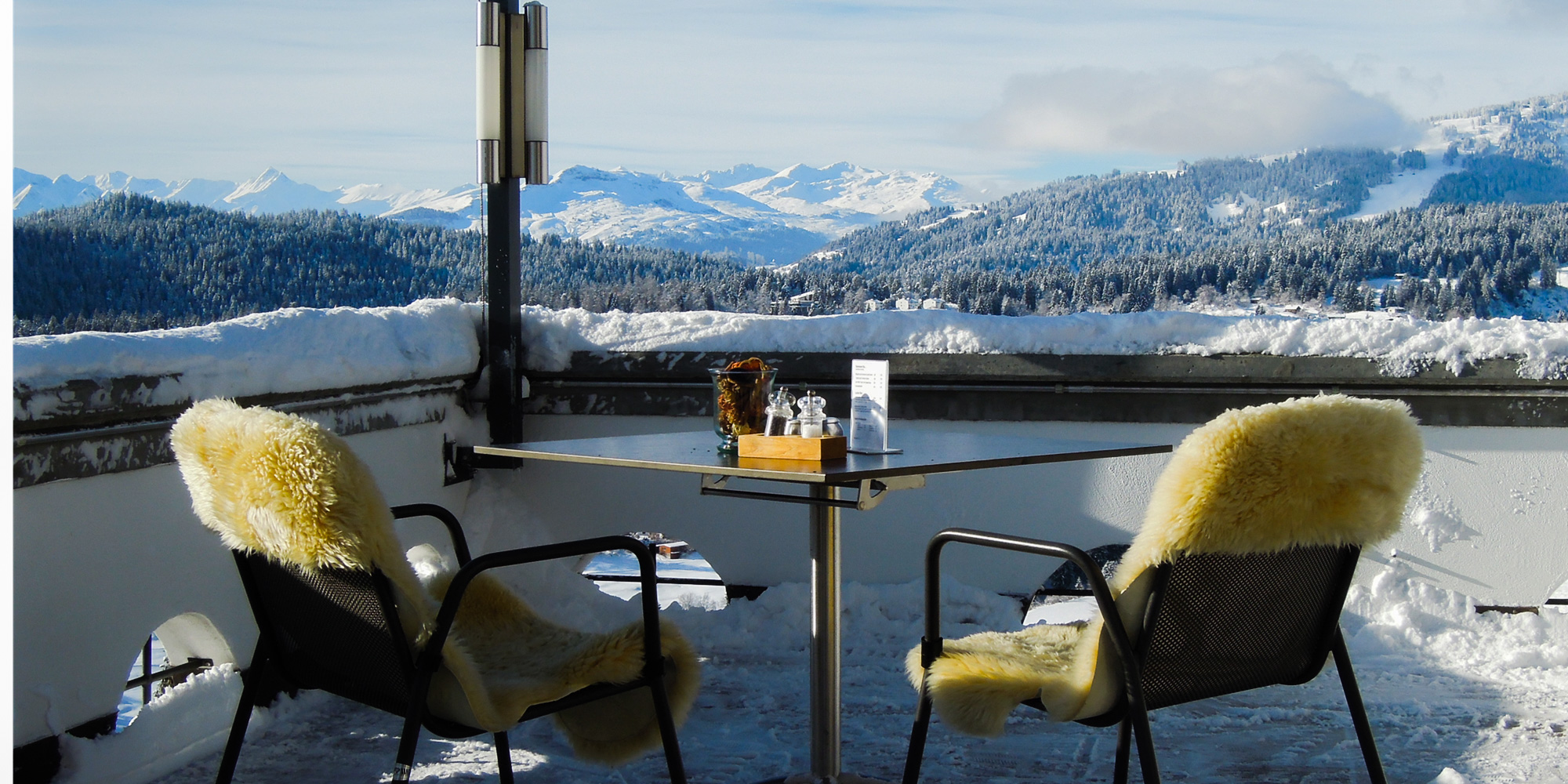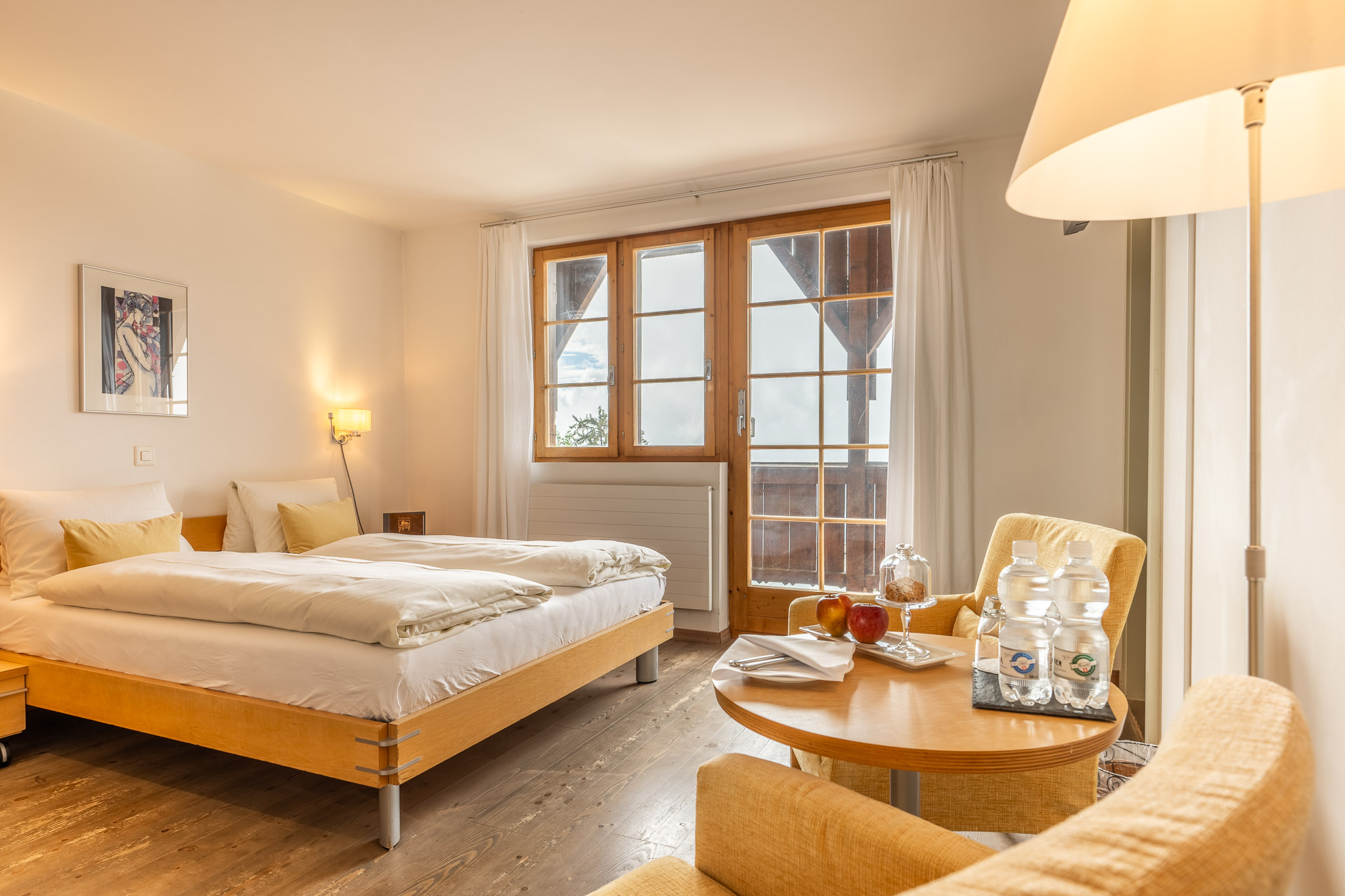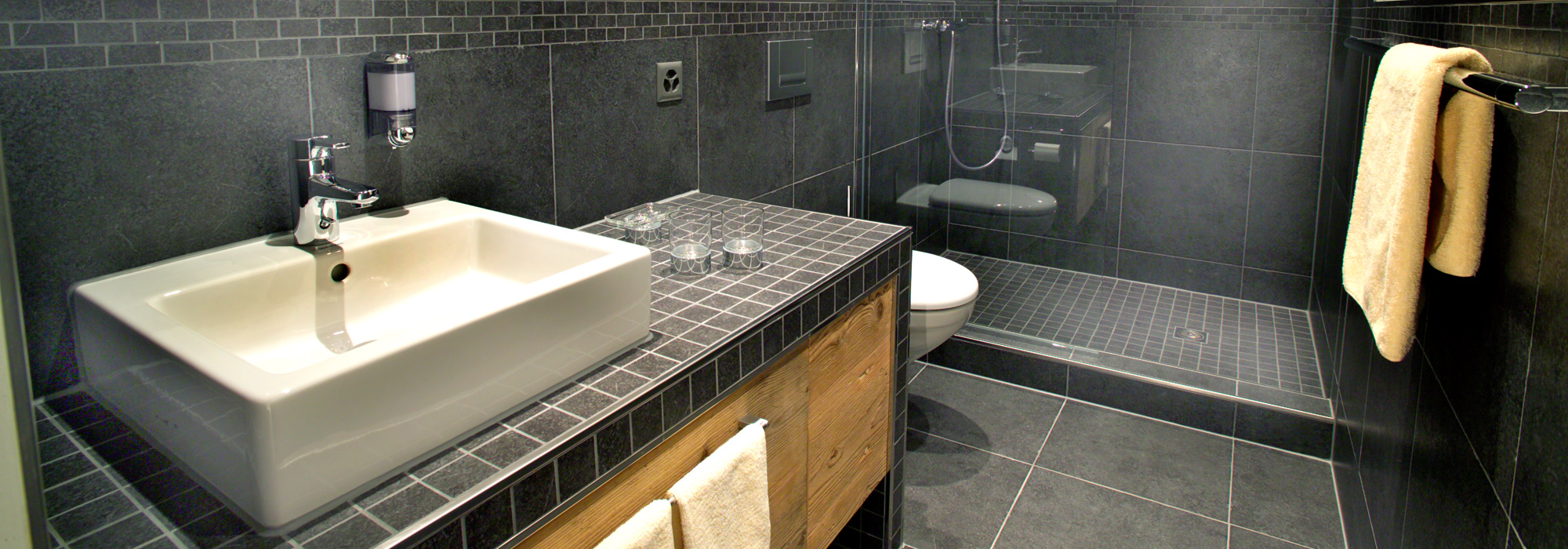FidazerHof Lexicon
(What you always wanted to know)
1. Belmont
This is the name of the ruins of the former castle of the barons of Belmont, which stands on a high rock with a magnificent view to the north-east of Fidaz, far above Trin. The ruins can be reached from the FidazerHof in a hike of around an hour through the forest (the path is steep and narrow in places!).
2. Canorta
Romansh term for meeting place, regulars’ table, village square. At the FidazerHof, Canorta is the name of the rustic fireside parlour reserved for our guests, with an extensive tea buffet and tempting snacks and fruit for cosy afternoons.
3. Crap da Flem
Romanesque name of the Flimserstein (Crap = rock, Flem = Flims). The striking massif with the Cassonsgrat ridge on the west side, the highest point at just under 2,700 metres above sea level, consists on the south side, towards Fidaz and Flims, of almost vertical rock faces with wooded ledges that form the edge of the gigantic Flims landslide, from which the entire region was formed over 10,000 years ago. To the north is a gently sloping high plateau. Towards the east, there is a steep path leading into the Bargis high valley.
4. Ladina
Female first name, originally Latina, meaning the one who comes from Latinum. Latinum was a region in central Italy in ancient times. Also a diminutive of the Slavic name Ladislava, the ruler.
5. attic
Room or flat in a converted part of the attic, with sloping roof; special roof construction technique (mansard roof). Word origin: name of French master builder/architect Mansart, from the 16th century.
6. pinut
Romansh word for ‘small pine tree’ (from bot. Pinus). (Caution, this still needs to be clarified with a ‘real Romanesque’, it is probably not correct). It is also the name of a 500 metre high via ferrata with difficulty level K2, which is located in one of the steep faces of the Flimserstein.
7. Pischa da Crap
The legend tells: Every 7 years, on the night of the full moon in August, the landlord of the Hotel FidazerHof (until 1920 Hotel Simplizia, until 1974 Kurhaus Fidaz) can draw water from the spring at a secret spot near the Pinut, known only to the host, with the help of the 7 mountain fairies. The water that leaves the Flimserstein that night is still called ‘Pischa da Crap’ or ‘Schteibisi’ to this day and can be bought from the host while stocks last. Meaning of the word: Pischa (pischar) / bisi: urine, urinate; Crap / Schtei: stone.
8. Flem
The Flem is a small tributary and also the namesake of the village of Flims. In the Romansh language, the destination is still called this today. The 16-kilometre-long tributary rises near the Laaxer Stöckli above Nagens, runs through the Stenna Gorge in Flims and the breathtaking Felsbach Gorge near Trin. The river flows into the beautiful Lake Cresta. In summer, the Trutg dil Flem is a spectacular hiking trail that provides an excellent introduction to the river.
9. Grander® water
Revitalised Grander water flows from all the taps in the Hotel FidazerHof.
The name GRANDER® has been protected since 1979. It describes a water revitalisation process based on the principle of information transfer, which brings water to a very high, stable and biologically valuable quality in a natural way. GRANDER® helps water to strengthen its immune system, with all the benefits for humans and all living creatures. GRANDER® water revitalisation can be used in private homes, restaurants, spas and medical facilities as well as in trade, industry and agriculture. GRANDER® stands for a conscious lifestyle in harmony with nature and one’s own body, for vitality, enjoyment, well-being, environmental protection (www.grandervertrieb.ch)
10. Ruinaulta
The Ruinaulta, also known as the Rhine Gorge, lies just outside the Alpine town of Chur. It forms a spectacular landscape that literally invites you to discover it. What began with the Flims landslide now presents itself as a unique natural backdrop. Between Ilanz and Reichenau, the Rhine has carved its way through the rock over a period of 10,000 years. The result is a gorge that is rightly nicknamed the ‘Swiss Grand Canyon’.
11. Schubergiada
This Romansh word is derived from the verb ‘schubergiar’ (Sursilvan dialect), which means ‘to clean’. At the FidazerHof, we use it to describe the various forms of Ayurveda therapy, as they serve to purify / cleanse.
